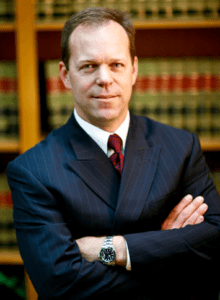 Claremont, CA Estate Planning & Probate Attorney
Claremont, CA Estate Planning & Probate Attorney
Making sure your loved ones are taken care of involves the diligence of an experienced estate planning lawyer. Our office is located in Upland and we regularly advise and set up estate plans and litigate probate matters from residents of Claremont, CA. Moga Law Firm focuses on estate planning to set up living trusts and prepare a last will and testament, probate litigation and trust administration.
Our office understands how important these legal documents & procedures are and we work directly with you to achieve your legal goals. Scot Moga has been an estate planning & probate lawyer serving Claremont for over 25 years preparing living wills, final wills and testaments, and any other type of estate planning document. Our expertise in California wills & trusts makes us a highly recommended local law firm for attorneys and judges. Call an experienced Claremont estate planning & probate attorney today at 909-931-2444 and schedule a consultation today.
Handling Wills, Trusts, Estates & Probate in Claremont
Moga Law Firm can help with all matters of creation, modification, administration or litigation of Wills, Living Trusts and Estates. We’ll explain to you the benefits and differences of living trusts, revocable trusts, wills and help you plan the best option for you, your family and your unique circumstances.
Difference Between Wills & Living Trusts
Both wills and living trusts are legal instruments used for estate planning purposes, but they serve different functions and have distinct characteristics. Here’s a comparison of the two:
Purpose:
Will: Dictates how your assets should be distributed upon your death. It can also name guardians for minor children.
Living Trust: Holds and manages assets for the benefit of certain beneficiaries. Assets can be distributed during the grantor’s lifetime or after their death.
Probate:
Will: Assets distributed under a will generally have to go through the probate process, which is a court-supervised process of validating the will and distributing the assets. This can be time-consuming and costly.
Living Trust: Assets held in a living trust can avoid the probate process, allowing for a potentially quicker and more private distribution of assets upon the grantor’s death.
Privacy:
Will: Once probated, a will becomes a public document, meaning its terms and the value of the estate can be accessed by anyone.
Living Trust: Remains a private document, keeping the details of your assets and their distribution confidential.
Control:
Will: Only takes effect after your death.
Living Trust: Can be set up to operate during your lifetime and after your death. This can be especially useful if you become incapacitated, as the trust can provide guidelines for how your assets should be managed in such circumstances.
Amendments:
Will: Can be updated or changed through a codicil, which is an addition or supplement that explains, modifies, or revokes a will or part of one.
Living Trust: Can be amended or revoked during the grantor’s lifetime, depending on whether it’s revocable or irrevocable.
Types:
Will: Generally, there’s only one type of will (though it can come in different forms like joint wills or holographic wills).
Living Trust: Can be either “revocable” (meaning the grantor can change or revoke it) or “irrevocable” (cannot be changed once established, offering potential tax benefits and asset protection).
Cost:
Will: Typically less expensive to create than a living trust.
Living Trust: Initially can be more costly and complex to set up than a will, but might save money in the long run by avoiding probate costs.
Protection from Challenges:
Will: More susceptible to challenges and disputes in court.
Living Trust: Slightly more resistant to challenges since assets have already been transferred to the trust.
When deciding between a will and a living trust, it’s essential to consider factors like the size of your estate, your privacy preferences, potential probate costs, and your desire for control over assets during your lifetime. It’s also common for individuals to have both a will and a living trust, as they can complement each other in an estate plan. Consulting with an estate planning attorney is recommended to ensure that your estate plan aligns with your goals and needs.
Is it Possible to Avoid Probate?
Probate can be avoided usually through the living trust process, whereby your assets are placed into a trust and you assign beneficiaries. You have the ability to access these assets to sell or liquidate as you see throughout your life. You can also acquire new assets like property and monetary investments and move them into the living trust over time. Upon passing, the assets will pass to the beneficiary (heir) without the need for probate court. An living trust is especially critical for individuals who own real estate, investments, retirement accounts, or large sums of money in the bank.
Some estates have to go through probate, and the heirs are sometimes forced to wait months, sometimes years for assets to be released and unfortunately end up receiving far less than they could have in inheritance. If you are in need of a Claremont probate lawyer we urge you to set an appointment today and learn about your options as an heir, trustee or trust administrator.
What Happens When Heirs Fight About Inheritance or Assets?
In a living trust, typically a family member will be named as the successor trustee, or the person identified to be responsible for the estate after the trustmaker’s passing. If you’ve been named in a will or living trust as a beneficiary, and another family member (or individual) is named as the “successor trustee” (or trust administrator), and you feel that they’re abusing their authority or misappropriating assets, litigation is likely necessary. In the most egregious situations there may be fraud or theft. In situations like these, it’s important to contact a Claremont probate lawyer at Moga Law Firm. Attorney Scot Moga has over 25 Years of experience and can help answer your questions immediately.
Probate Litigation
You might also be facing probate court & litigation if there was no will or trust left by a deceased family member, also known as “intestate”. Property, bank accounts, and real estate may be taken into consideration to pay off debt and be distributed as seen fit by a probate court. Scot Moga has handled countless probate litigation and administration cases and is often referred “the tough ones” by local judges and fellow local attorneys.
 Contact an Experienced Probate & Estate Lawyer Serving Claremont, California
Contact an Experienced Probate & Estate Lawyer Serving Claremont, California
At Moga Law Firm we pride ourselves on providing outstanding personalized service to each and every one of our clients. While many firms cut costs by outsourcing document preparation to paralegals, we promise that you’ll work directly with Scot on all documents and case litigation.
As a 1-attorney firm we are your only lawyer, and you will be treated like you’re our only client and we’ll communicate with you regularly so you don’t get lost in the legal process. Every family situation is unique and different, we accept all client’s lifestyles and circumstances and pursue your wishes with a custom strategy.
To schedule a free initial consultation with an experienced Claremont estate planning lawyer, call 909-931-2444 or contact us online. Se habla español.

 Contact an Experienced Probate & Estate Lawyer Serving Claremont, California
Contact an Experienced Probate & Estate Lawyer Serving Claremont, California